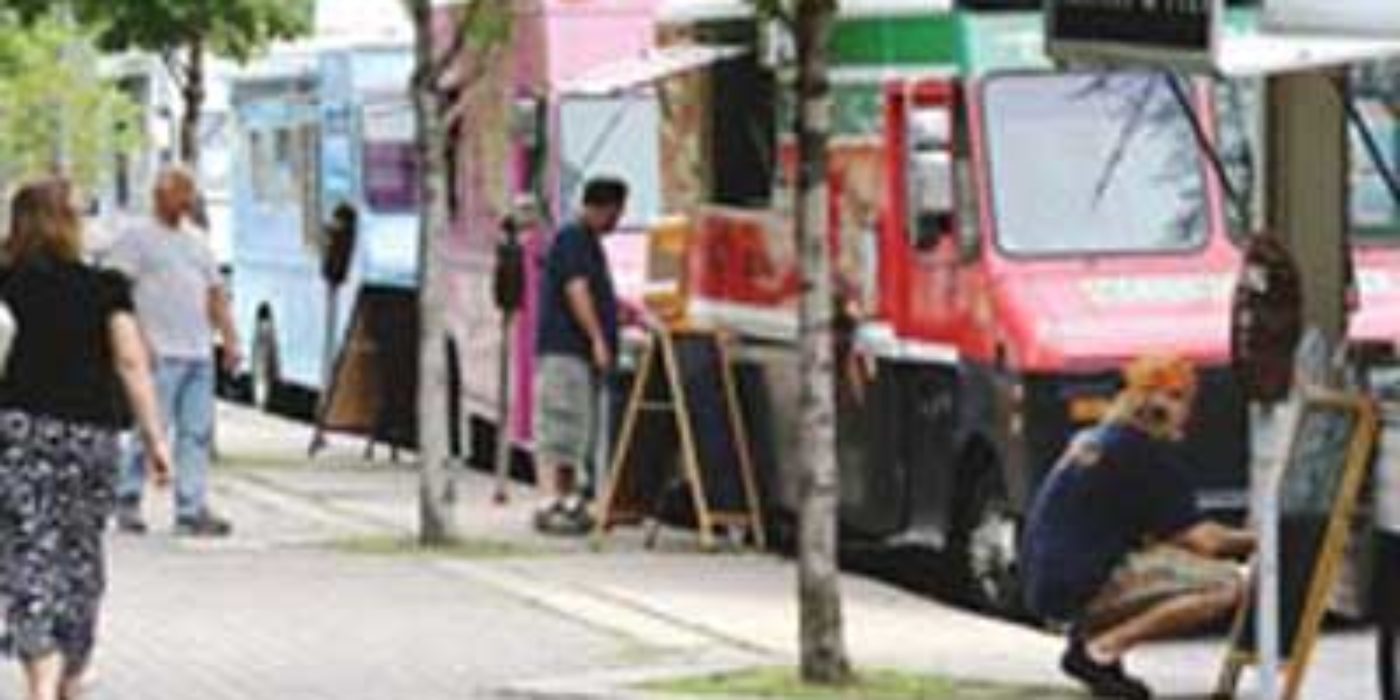For those looking to join the food-truck frenzy, take note: It is hard work. It’s very competitive. And, like any small business, the failure rate is pretty high. Some trucks close after just one season.
But if you’re game, here are the basics for getting started.
(You can also read our related story, “Lunch on Wheels: So you want to start a food truck?“)
First things first
If you don’t know a single thing about food, or starting your own food business, check in with a company like Kindred Kitchen, a licensed commissary kitchen and food business incubator. The organization offers exploratory workshops and advice on everything from how to wear a hair net to how to write a business plan.
Do you have the temperament?
Kindred Kitchen’s administrator Kathy Keys says some personalities are better suited for the food truck than others. “It’s a huge commitment of time, energy, and money,” says Keys. “It’s best if you’re a charismatic self-starter because you’re the number one sales person in your business, so you’ve got to be outgoing.”
Certification
To get a license to operate in Minneapolis or St. Paul, all vendors must have a food manager certification, offered by the state of Minnesota. The one-day class teaches the basics of food preparation, sanitation, cooking temperatures, etc. The certification, which costs about $150, is good for three years.
Insurance
Minneapolis and St. Paul require liability insurance of at least $1 million per truck. The cost of liability insurance ranges from about $1,000 up to $10,000 annually, depending on a variety of factors, including experience of the vendor, the value of the truck, its equipment and tools, and all the exposure of a restaurant on wheels.
Licensing
Minneapolis: $818 per truck, plus a one-time new business surcharge of $126, and a food plan review fee ranging between $150 and $400. Minneapolis also requires vendors to use a commercial kitchen to prepare the food. This could add to the cost.
St. Paul: $244 per truck. That’s it.
The truck or trailer
It’s the most essential ingredient but also the biggest expense of the venture.
Plymouth-based Chameleon Concessions can build a trailer, complete with kitchen, for between $20,000 and $40,000.
The cost of a truck is higher, ranging from $5,000 to $50,000 for a used FedEx-type truck. But unless you’re very handy, you’ll have to pay somebody to put a kitchen in your truck. That costs between $30,000 and $50,000, bringing your total expense for a used truck with a kitchen to between $35,000 and $100,000.
So, if you add the total truck/kitchen cost to the fees and certification costs, the initial investment to get your food truck (not the trailer) rolling in both Minneapolis and St. Paul is between $37,000 and $112,000.
But, keep in mind that starting a food truck also involves other expenses. For instance, you’ll need to paint the truck and put your logo on it. And to keep it going, you’ll need to pay for gas and ongoing maintenance.
There’s no getting around buying a generator to power your truck/kitchen when it’s parked. You’ll need more fuel for that, as well as propane for your grill.
Of course, there’s the cost of the food itself for your menu items, and some trucks may need to pay rent for a commercial kitchen to prepare the food (which is required in Minneapolis). And, as with any small businesses, you’ll probably need to pay for legal advice, advertising and a presence on the Internet.
Source: Food trucks: Getting started and doing the math – Finance & Commerce



